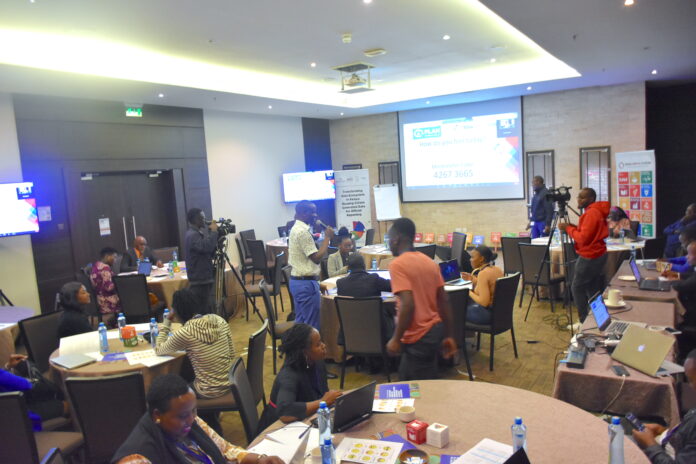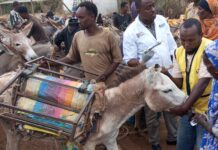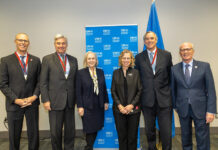By Sharon Kiburi
Nairobi, Kenya: Data is essential in decision-making and disaggregated data which is data which is data broken down into subcategories ensures that the decision made is meaningful and inclusive.
Hellen Apila, Gender lead at the Sustainable Development Goals (SDGs) Forum Kenya, explains “Kenya’s Agenda 2030 sets out a historic and unprecedented ambition to achieve gender equality and empower all women and girls by 2030, which is a vital priority in Sustainable Development Goal five, including 51 gender-related targets in 10 other SDGs”.
Agenda 2030 commits to addressing core issues of gender equality and women’s empowerment, such as eliminating all forms of violence against women and girls, eradicating discriminatory laws and constraints on sexual and reproductive health and reproductive rights, recognizing and valuing unpaid care and domestic work, and increasing women’s participation in decision-making.
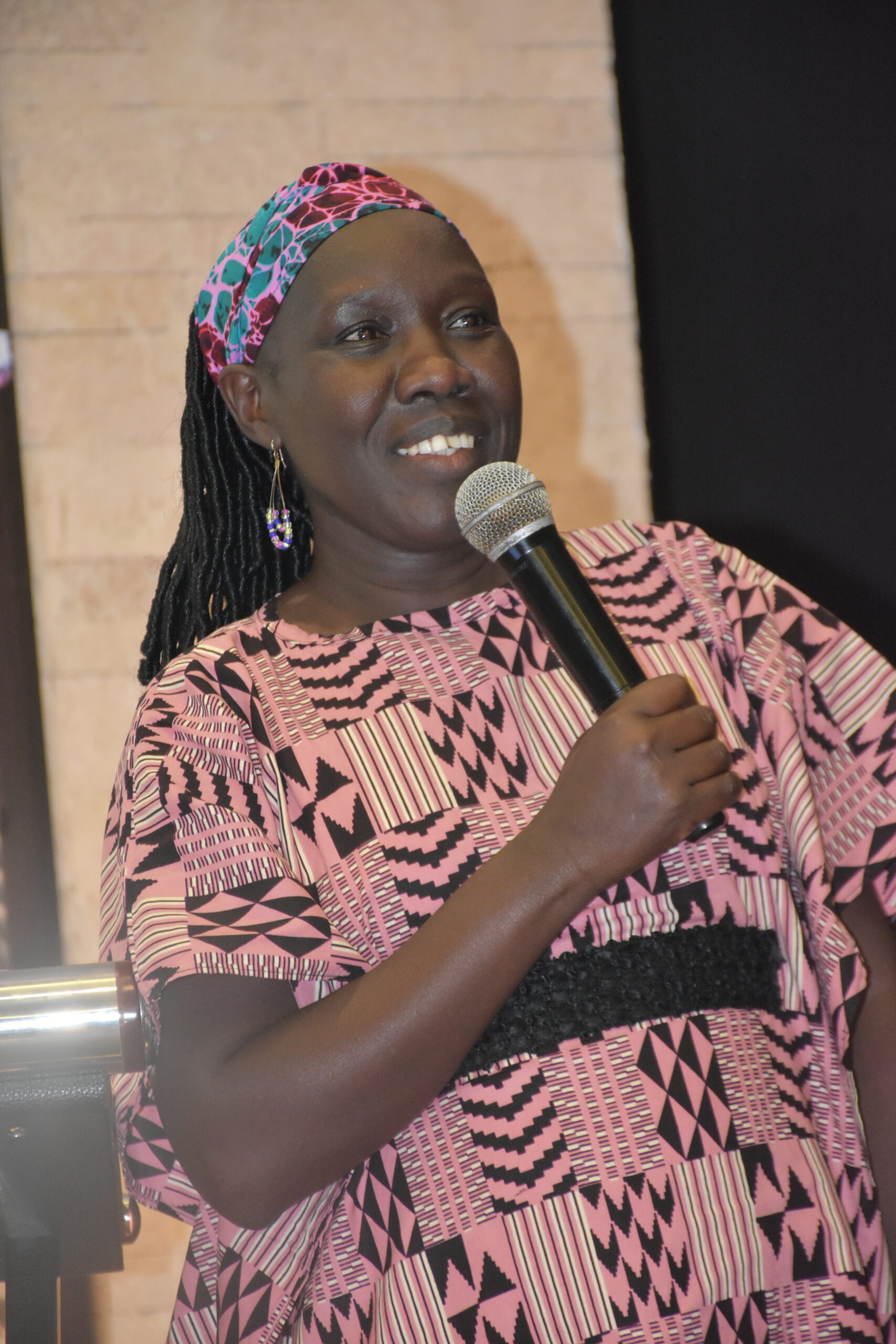
Miss Apila says SDGs Kenya Forum works to build strong collaborations and partnerships with multiple stakeholders to strengthen public participation mechanisms by making citizens aware of their roles and responsibilities.
They also coordinate and build a robust platform for Civil Society Organizations (CSOs) to engage with decision-makers in implementing SDG 5 and all gender targets in the other 16 SDGs.
A study Report on the SDG 5 Gender Data Implementation Gap Analysis between Plan
International and SDGs Kenya Forum shows promoting gender equality and empowering
women, youth, children, and vulnerable members of society is essential in realizing human rights and sustainable development.
Elaborating on the report ‘Accelerating the Attainment of the Gender Equality Women’s Empowerment and Women’s Rights in Kenya’ Naftali Ng’ang’a of SDG Kenya forum, remarked “The County research for the report took too long in the draft
form and the national policies are generalized in nature and should be localized for greater
impact.”
The study involved undertaking budget analysis to highlight expenditure levels, costing,
fiscal space, and financing for SDG 5 in Kenya for the current budget cycle 2022–2023 with a gender lens.
It also involved establishing a trend in allocation and expenditure levels, targeting
gender investments. Targeting the national government and a closer look into the three county governments, namely Kisumu, Siaya and Nandi budgets.
Ng’ang’a further spoke on what the study hoped to achieve, which was to document progress and milestones realized in the implementation of SDG 5, Identify existing barriers/challenges that prevent the realization of gender equality targets in Kenya.
Documenting best practices in the mainstreaming of gender aspects into County Integrated Development Plans (CIDPs) within sub-national levels of study. Contributing towards influencing the CIDPs, analyzing the adequacy of the existing gender mainstreaming legal in the counties and supportive strategies to accelerate the realization of SDG 5.
According to Ng’ang’a, some of the study findings were that legal, policy and institutional
frameworks support gender equality Nationally and in three counties.
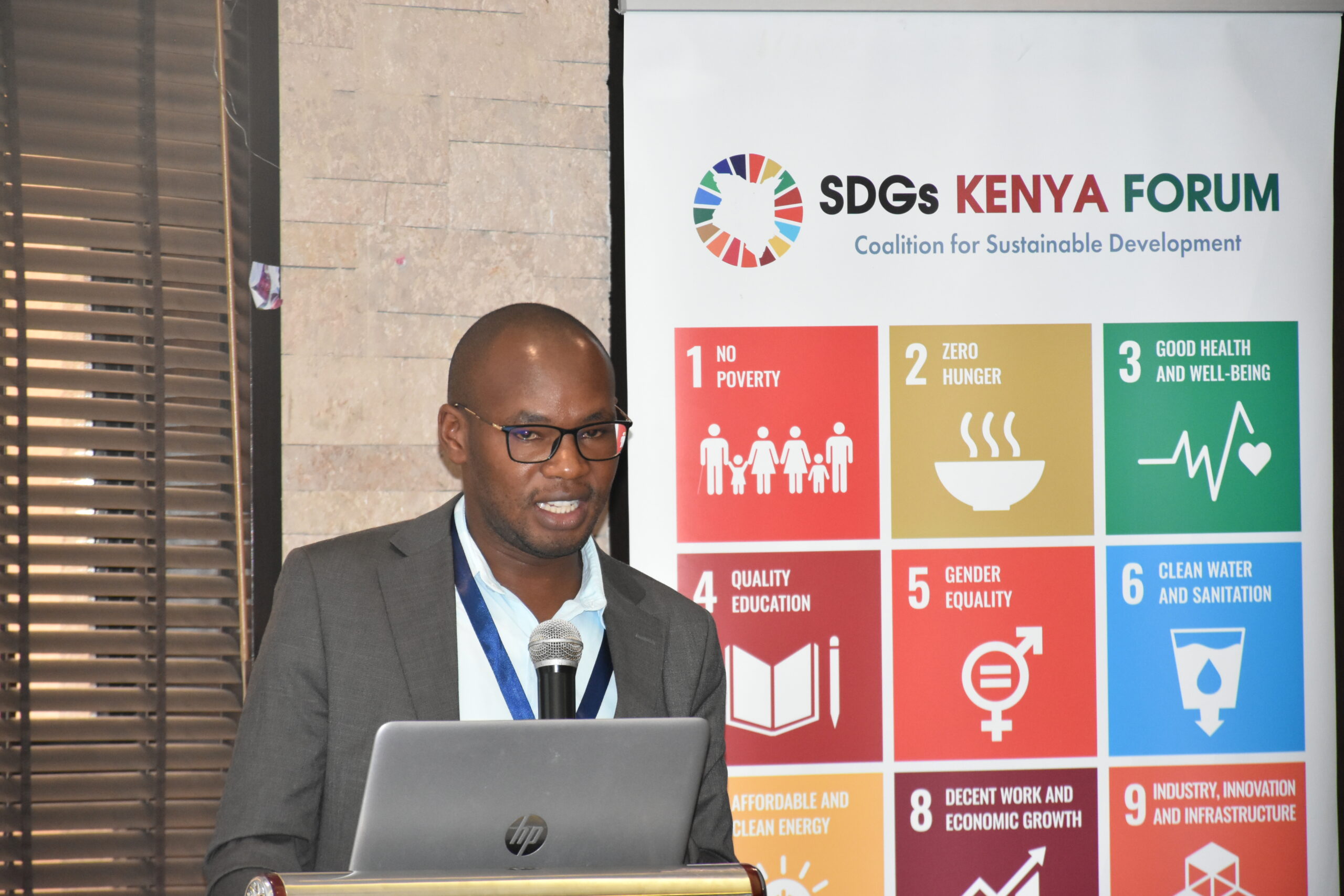
Kenya has a progressive policy, legal frameworks, and governance structures and with that, men still participate more in the labour force, they earn more than women and have more significant opportunities to participate in the formal economy and political sphere.
These disparities are due in part to unequal gender norms, which are reflected in the social, economic, and political institutions (formal and informal) that shape how women and girls experience gender bias and discrimination throughout their lives at the county level.
However, most counties are in the process of developing gender policies but some counties continue to rely on national legal and policy frameworks. With the contextual nature of
gender mainstreaming with a caveat ‘not one size fits all‘, it becomes a challenge in different settings.
“Whereas policy development should be participatory in nature, as per the constitution, most of the existing drafts have been prepared without the involvement of all stakeholders. This has had an effect on ownership,” says Ng’ang’a.
I met with Linet Ouma, an advocate for sexual reproductive health(SRH) in Kenya “In
underserved communities where patriarchal customs are like the rule of women and girls get little to no information on sexual reproductive health, neither do they have access to
contraceptives they often due to even purchasing power issues” she says
Women and girls are not involved in such communities when public educational programs on SHR are organised. They get information from the men who attend and choose to give selective information driven by their biases.
“In some of these communities, some women and girls do not have access to
skilled health workers during their pregnancy and when giving birth which puts the mothers and babies at risk,” explains Miss Ouma.
Ouma and her team are working on targeted programming to inform and change the attitudes of both men and women to understand the importance of having the correct information on sexual reproductive health and access to medications.
“To successfully track the implementation of the gender targets and indicators under the 2030 Agenda, there is a need to increase the availability, accessibility and use of quality gender data and statistics on critical aspects of gender equality and women’s empowerment” says Apila.

